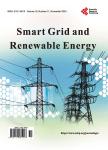Investigation of Bandwidth Requirement of Smart Meter Network Using OPNET Modeler
Investigation of Bandwidth Requirement of Smart Meter Network Using OPNET Modeler作者机构:School of Engineering and Built Environment Faculty of Sciences Engineering and Health CQ University Rockhampton Aus- tralia.
出 版 物:《Smart Grid and Renewable Energy》 (智能电网与可再生能源(英文))
年 卷 期:2013年第4卷第4期
页 面:378-390页
学科分类:080904[工学-电磁场与微波技术] 0810[工学-信息与通信工程] 0809[工学-电子科学与技术(可授工学、理学学位)] 08[工学] 080402[工学-测试计量技术及仪器] 0804[工学-仪器科学与技术] 081001[工学-通信与信息系统]
主 题:Smart Meter Network Smart Meter Router Firewall Server Communication Bandwidth Propagation Delay Throughput Utilization
摘 要:Smart meter networks are the backbone for smart electrical distribution grid. Smart meter network requires the bidirectional communications medium and interoperability capability. As thousands of meters are interconnected in the smart meter network, it is vital to select an appropriate communication bandwidth to facilitate real-time two-way information flows and this will also allow further uptake of greenhouse-friendly technology options and enhance energy security. Optimized Network Engineering Tools (OPNET) Modeler is one of most powerful simulation tools for the analysis of communication networks. In this paper, several models of different structured smart meter networks were developed with network parameters which were connected with different communication links such as 10 BaseT and 100 BaseT in order to measure propagation delay, throughput, and utilization of the network. It was found that the propagation delay decreases with higher bandwidth. The other network parameters, namely network utilization and network throughput were also analysed. Based on the investigation, it is recommended that the 100 BaseT communication link is suitable for the smart meter network. The outcome of this paper provided a guideline to the future smart meter network developer so as to avoid catastrophic challenges faced by some of the distribution companies.



